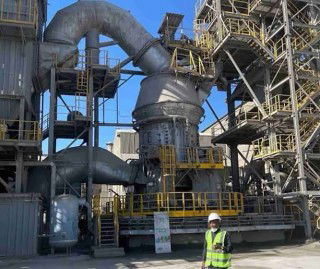The increasing trend of African sector mergers reflects the tightening economic pressures on African cement producers and their challenging prospects going forward.
In the past week, ICR has reported on the merger between Unicem and Atlas Cement in Nigeria as well as CRH's interest in acquiring PPC Cement of South Africa. Meanwhile, the Kenyan and Tanzanian markets could also see a change in structure with ARM looking for new investors to stave off becoming the latest takeover target.
Tanzania has weakened ARM's performance
ARM is a cement producer with multinational assets that include cement plants in Tanzania, Rwanda and Kenya, and an overall cement capacity of around 3.05Mta. The company has seen its profits squeezed particularly in Tanzania where strong competition has arrived from the new 3Mta Mtwara Dangote cement plant, while fuel availability has been in short supply following the government’s coal import ban, which has hampered clinker production. ARM’s logistical costs have also been raised as the Songea coal resource in Tanzania is 1400km away from the Tanga cement plant.
"The last three years in Tanzania we have had a very difficult operating environment," said CEO Pradeep Paunrana. “It has left a gap in the balance sheet of the company which needs to be filled."
While cement demand in Tanzania remains stable with marginal growth on 2016 forecast by ARM, competition between cement producers has forced prices down. This has not helped the group’s recent operating performance and in 1H17, ARM reported a loss after tax of KES-2.8bn (US$-26.9m).
In addition, in October 2017 ARM sought a US$15m cash injection from key shareholders to enable it to find a strategic investor going forward, while in 2016 it received US$135.5m from CDC Group for a 42 per cent share in ARM Plc. It also sold non-core assets in May 2017 to boost its cash flow.
Looking ahead, while competition in Tanzania has been increasing among cement producers, there are major government projects in the pipeline with major infrastructure development programmes, including the high-speed Dar es Salaam-Morogoro SGR electric railway line. Housing construction is also expected to return to double-digit growth, according to ARM estimates.
New plant projects in Kenya need investment
Defending market share in Kenya is also key for ARM, which has planned construction of a 2.64Mta cement plant in Kitui, as well as an expansion of its existing Athi River plant by 0.65Mta, which is due to come on-stream by mid-2018.
The US$300m Kitui plant will be located 100km east of Nairobi but is not expected to be completed until 2021. "We plan to have this project in the next four to five years," said Mr Paunrana last year.
ARM may resort to a partial sale
ARM's CEO said the company has a total debt of US$125m and is in talks with creditors to restructure US$100m of short- and medium-term debt into 10-year borrowing.
ARM may look vulnerable to a takeover, but the company's priority is to find "a strategic buyer to inject equity into the business," according to Mr Paunrana. "The process is open and it may be an injection of equity, it may be partial sale. It could be any structure the board will decide on."
Mr Paurana is further quoted by the Business Day as clarifying that ARM has six potential investors, but there are ongoing talks about the level of interest and the possible structure of any investment deal.
